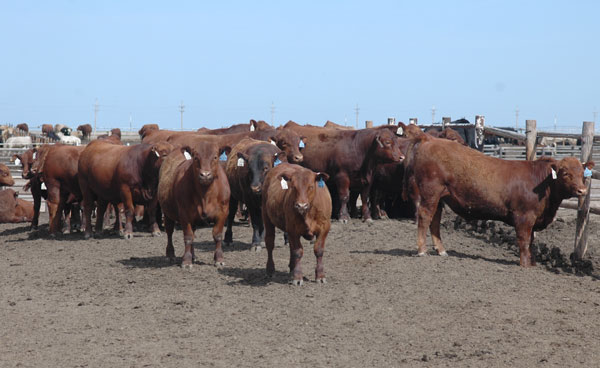NCBA President J.D. Alexander said this move by EPA is a victory for cattlemen and women and illustrates the importance of the beef cattle community working together to educate government officials.
July 16, 2012

Late Friday afternoon, July 13, 2012, the Environmental Protection Agency (EPA) withdrew its proposed Clean Water Act (CWA) Section 308 CAFO (Concentrated Animal Feeding Operations) Reporting Rule. The rule sparked controversy within the agricultural community due to what was referred to as a serious overreach of EPA’s authority. The National Cattlemen’s Beef Association’s (NCBA) primary concern was the likelihood the proposed rule could put the nation’s food system at risk of increased terrorist attacks. NCBA President J.D. Alexander said this move by EPA is a victory for cattlemen and women and illustrates the importance of the beef cattle community working together to educate government officials.
“Early on, we called for EPA to pull this rule. It turns out they listened. This really showcases the importance of cattlemen and women becoming engaged in the regulatory process and making sure their concerns are heard,” said Alexander. “We encourage the agency to redirect its focus to working with states and other partners to attain already publicly available information that would allow them to work toward their goal of improved water quality. This can be done in a way that does not put our food system at increased risk.”
The proposed rule required all cattle operations meeting the regulatory definition of a CAFO to report a long list of information about their operations to EPA, including latitude and longitude (or street address) of the production area, acres available for land application of manure, type and number of head and contact information for the owner or authorized representative. EPA stated it would place this information on the agency’s website in an easily searchable database, where NCBA feared extremists could access the information with the intent to do harm to cattle operations or the nation’s food system. Any non-compliance with the proposed rule would have been a violation of the CWA, which would have resulted in fines of up to $37,500 per day.
Alexander said NCBA worked with EPA to convey the privacy concerns on behalf of cattlemen and women. On Feb. 3, 2012, NCBA invited EPA to attend its annual convention in Nashville, Tenn., to discuss the proposed rule face-to-face with the beef cattle community. Ellen Gilinsky represented EPA at NCBA’s convention, where she acknowledged the industry’s biosecurity and privacy concerns. Alexander said cattlemen speaking directly with EPA officials makes a lot of difference.
“EPA resides in Washington, D.C., and seldom gets the opportunity to hear directly from the providers of food for this country,” said Alexander. “It is paramount that we continue being engaged in the regulatory process. They need to hear from us. We must not take this lightly. This recent announcement by EPA proves that we can make a difference.”
You May Also Like



